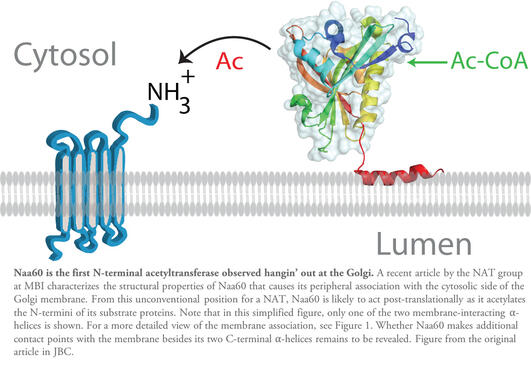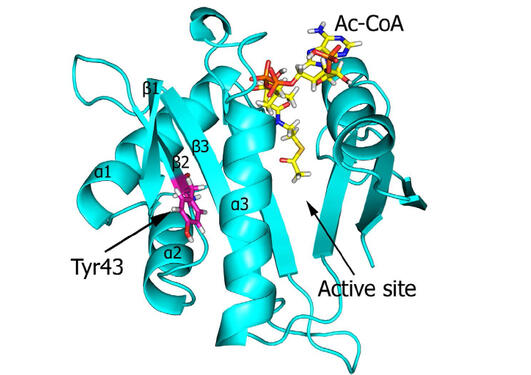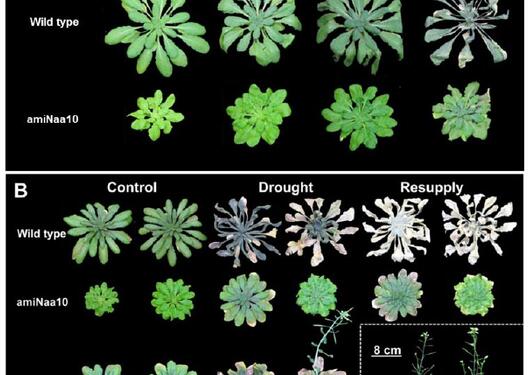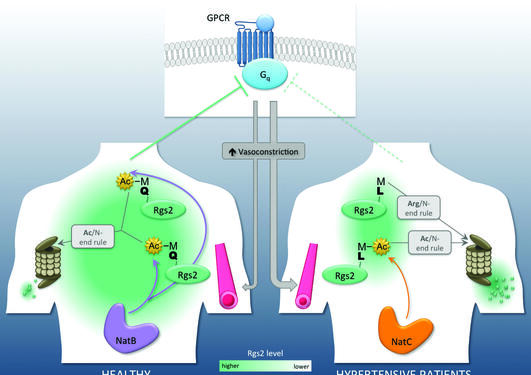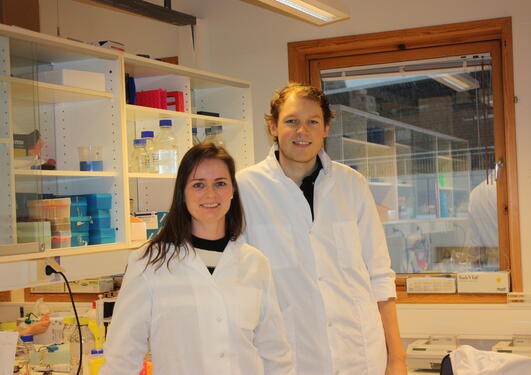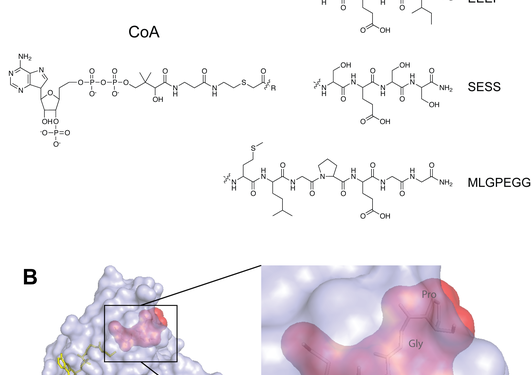News archive for Translational Protein Research
Cancer is a complex disease caused by a multitude of factors gone wrong in the cell. NAA10 may be one such factor. This is a protein that performs many different tasks, including the most common which is catalyzing the acetylation of cellular proteins. NAA10 can therefore be viewed as a ”Jack of all trades”-protein. For two decades it has been linked to cancer progression, but recent data puts... Read more
Many proteins have the Golgi apparatus as their favorite hangout place. For N-terminal acetyltransferases (NATs), however, this is a rather unique characteristic as only one NAT, Naa60, was shown to localize to intracellular organelles.
Drought is an increasing problem all over the world and the main reason for crop failure, thus there is a need to develop plants that are highly resistant to drought. We have found targeting of the NatA enzyme to be a way to develop highly drought resistant plants since NatA controls the stress imposed on plants by drought.
Hypertension or high blood pressure is a major health problem that can result in cardiovascular diseases including hypertensive crisis and stroke. A recent paper in Science by Hwang and Varshavsky shows that the molecular signaling underlying regulation of blood pressure involves N-terminal acetylation of specific proteins and their consecutive degradation by the N-end rule pathway.
UiB researchers have developed a “GPS system” to find protein-positions in cells. The method was used to reveal a special localization the newest member of an enzyme family with important tasks in the human body. This new enzyme knowledge may be useful in medicine and the cellular "GPS system" could become a useful tool in both basic biological and biotechnological research.
This week, Line Merethe Myklebust, Svein Isungset Støve and colleagues in the Arnesen and Reuter groups of the Protein modifications, Metabolism and Disease (ProtMetD) research programme at MBI, presented novel findings on the Ogden syndrome in Human Molecular Genetics.
Small chemical groups are commonly attached to proteins in order to control their function. In eukaryotic cells, N-terminal acetyltransferases (NATs) attach acetyl groups to the very first amino acid (the N-terminus) of a majority of proteins. Now, researchers at MBI (UiB) and VIB-Gent have discovered that NATs also carry out other types of protein modifications.
Pages
- June 2025 (1)
- November 2024 (1)
- October 2023 (1)
- August 2023 (1)
- December 2022 (1)
- December 2021 (1)
- July 2021 (1)
- February 2021 (1)
- November 2020 (1)
- September 2020 (3)
- April 2020 (1)
- March 2020 (1)
- February 2020 (1)
- December 2019 (1)
- June 2019 (1)
- March 2019 (2)
- March 2017 (1)
- December 2015 (1)
- July 2015 (1)
- June 2015 (1)
- March 2015 (1)
- December 2014 (1)
- November 2014 (1)
- December 2013 (1)
- April 2013 (1)
- February 2013 (1)
- January 2013 (1)

